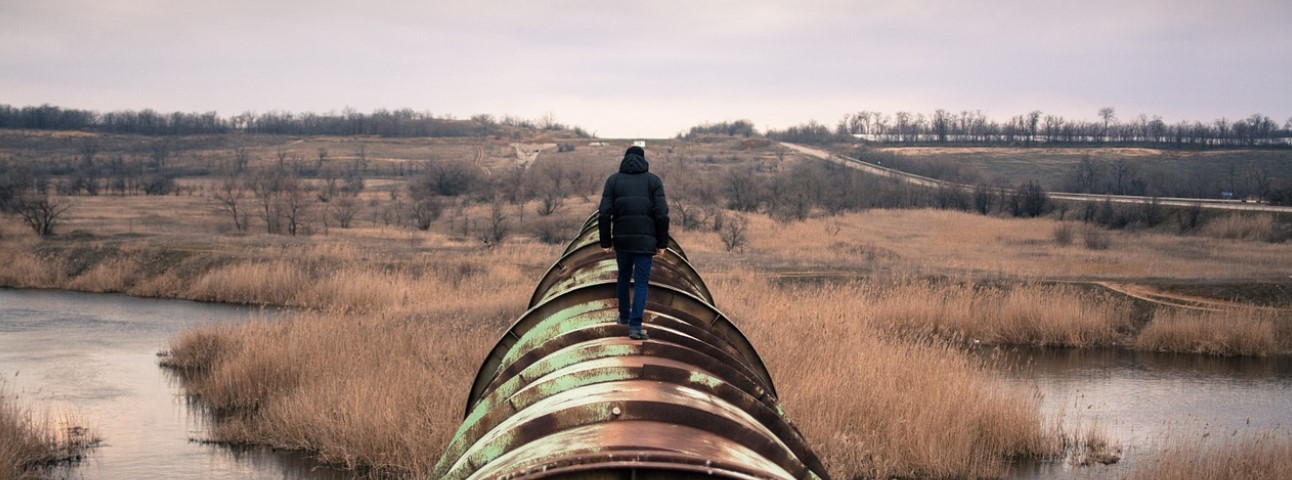In December 2019, the Trump administration announced sanctions against the Swiss company Allseas, which at that time had laid the pipes of the 1 224-kilometer-long Nord Stream 2 gas pipeline for up to 160 kilometers. And as recently as two weeks ago, the American Senate was preparing new coercive measures against German and European companies and authorities involved in the German-Russian project.
A Berlin government spokeswoman immediately protested against the “interference in our internal affairs”. In 2011, the first line, Nord Stream 1, which was now fully utilized, was opened. But Nord Stream 2 is struggling.
While political editor Reinhard Veser called the American methods “unacceptable” in the German daily FAZ, he nevertheless believes that the gas pipeline is a strategic project of the Kremlin, “which poses great threats to European security”.
Bandulet dismissed his concerns in an opinion article in Junge Freiheit. “Russian natural gas covers a third of the EU’s consumption. With imports of 58,5 billion cubic meters, Germany is the largest Gazprom customer. Austria, Italy, Great Britain, France, Poland, the Czech Republic and Hungary also import from Russia. Gazprom was always on time, always delivered.”
Bandulet said Gazprom relied on its European customers more than the other way around. “For example, 22 liquid gas terminals are available in the EU. They are underused. Nobody prevents US producers from delivering more. All they had to do was offer their natural gas cheaper than the Russians. Because they don’t want to or can’t do it, Washington tries other means to push a competitor out of the market.”
According to Bandulet, the protagonists of free trade are the Russians. “Where is the problem? Moscow needs the money, the Europeans need the gas. The new Baltic Sea management will increase supply, intensify competition and tend to lower gas prices for all Europeans.”
Russia is also interested in a pipeline that cannot be sabotaged, he pointed out. “The transit country Ukraine has repeatedly tapped Russian gas for its own consumption, even though Kiev has been granted preferential prices. Even in the opinion of neutral observers, Kiev was complicit in the Russian-Ukrainian gas conflicts in 2006, 2009 and 2014.
“Seen in this way, the new gas pipeline does not endanger Europe’s security, it increases it. Due to the declining productivity of Western European gas fields and the ‘energy transition’ of the Angela Merkel government, the EU will have to import more natural gas in the future.”
It was no coincidence that Washington attempted to put pressure on Berlin in June with another threat, namely the announcement that it would withdraw approximately 10 000 of the 34 500 American soldiers stationed in Germany, Bandulet said. “The only question is who relies on whom here?”
For the wars in the Middle East, Afghanistan and Africa (also for the drone war!), the proverbial “unsinkable aircraft carrier Germany” is indispensable. Warsaw has also positioned itself with the US against its two unloved neighbors and the geostrategists in Washington, with or without Trump, are trying to block any German-Russian cooperation.
An amicable end to the gas war is not in sight, Bandulet argued. “In Washington, preference for extraterritorial sanctions that are contrary to international law remains steadfast – because the potential and influence of the once ‘only world power’ are eroding.
“And Berlin will not be able to answer the blatant violation of Germany’s sovereignty and economic integrity as long as the Greens are not in government. The loss of face for the Merkel government would be immense.”













One comment
Like what the jews do to their Palestinian neighbours, the U.S. is not any better when it comes to pushing our wares. Might is not right.
By submitting a comment you grant Free West Media a perpetual license to reproduce your words and name/web site in attribution. Inappropriate and irrelevant comments will be removed at an admin’s discretion. Your email is used for verification purposes only, it will never be shared.